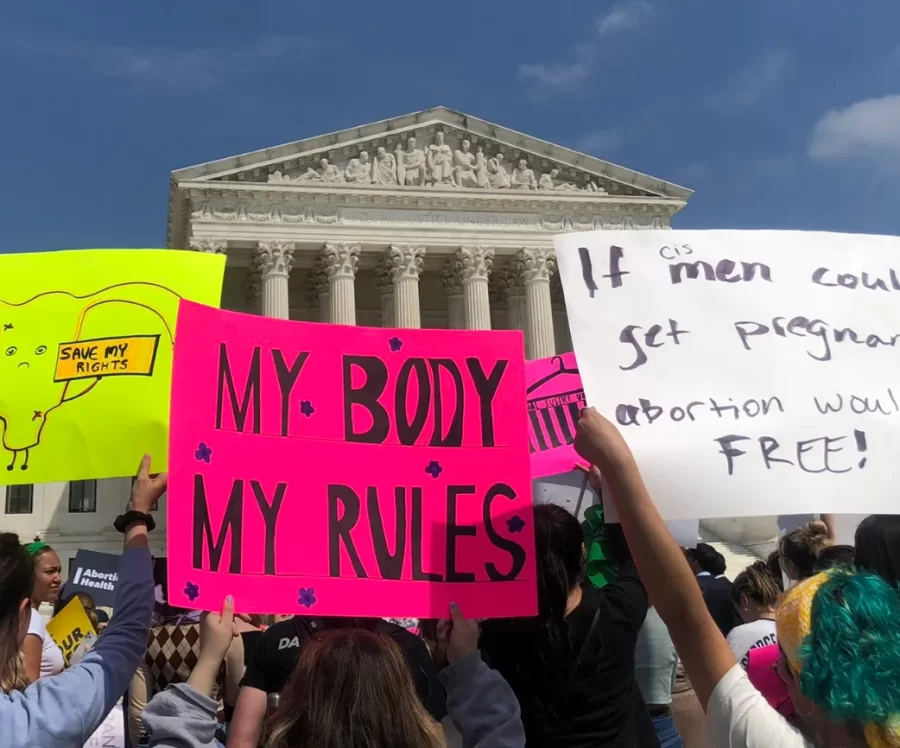The Beginning of the End for Roe v. Wade: What Does This Really Mean?
In this article, we take a look at the Supreme Court’s leaked decision to overturn abortion rights, and how that will affect women in the coming future.
Almost half a century ago, the United States granted “Jane Roe,” otherwise known as Norma McCovey, the right to choose to have an abortion or not without excess restrictions from the government. Since then, Roe v. Wade has evolved into becoming a landmark case in favor of women’s reproductive rights. The case itself caused a ripple effect in government, with cases such as Doe v Bolton (1973), which overturned Georgia’s law of prohibiting abortions, and Bigelow v. Virginia, where the Supreme Court ruled that the banning of advertisements for abortion clinics is illegal, as attained by ACLU.org
Now, it seems that all of this progress in terms of women’s freedoms may soon be a distant memory. The clocks are traveling backwards, 49 years to be exact, succumbing women to a role of subservience in their own bodies.
On May 2, 2022, POLITICO published an article titled “Supreme Court has voted to overturn abortion rights, draft opinion shows,” where it was revealed that the “Supreme Court has voted to strike down the landmark Roe v. Wade decision.”
In short, Justice Samuel Alito, the spearhead of this decision, claimed alongside other members of the Supreme Court that “Roe was egregiously wrong from the start. Its reasoning was exceptionally weak, and the decision has had damaging consequences. And far from bringing about a national settlement of the abortion issue, Roe and Casey have enflamed division and deepened division,” as reported by POLITICO.
While the leaking of a court decision, especially one this major, was highly uncommon from the start, the response to this decision was even more shocking to members of the Court.
Women and men have begun protesting across major cities in the U.S., including Washington, D.C., Seattle, Boston, Sacramento, and many other notable places all over the nation. Many people have also begun to raise awareness of women’s rights in the hopes to keep Roe v. Wade in place, with hashtags such as #saveroevwade having 1,000+ posts as per Instagram.
But, what does overturning Roe v. Wade really mean? What else is put into jeopardy if this monumental case ceases to exist?
With the United States establishing the foundation of their country on democratic ideals and placing emphasis on citizen’s right to choose just about anything else, taking away a woman’s choice on what to do with her own body creates an alarming image to other countries around the world. Making such decisions would “damage the global perception of the United States,” said Amnesty International’s secretary-general, Agnès Callamard, as obtained by NPR.
More so than that, making abortion illegal does not make it impossible, nor will it decrease the rate at which women seek to get one. In fact, eliminating Roe v. Wade from the playing field decreases access to birth control knowledge and no longer provides as many safe havens for women, provoking them to resort to more heinous options.
“Research shows that making abortion illegal doesn’t reduce the number of abortions performed,” stated NewsScientist. “In fact, countries with more restrictive laws actually have higher abortion rates than countries where abortion is widely available, according to a 2009 study by researchers at Brigham and Women’s Hospital in Boston.”
This same research also showed that “abortion-related deaths are 34 times higher in countries with restrictive abortion laws.”
The overturning of Roe v. Wade seemingly puts more women in the hands of danger more so than anything else and begs the question on whether women’s reproductive rights are truly an importance in this country, or simply something willing to be thrown away by other men and women in legislative power.
If you or someone you know is interested in donating to organizations that support access to abortions, click the links down below for more information:
Women’s Reproductive Rights Assistance Project: https://wrrap.org/
National Fundraiser: https://secure.actblue.com/donate/fundabortionnow
ACLU: https://action.aclu.org/give/now
Center For Reproductive Rights: https://secure3.convio.net/cfrr/site/Donation2?9666.donation=form1&df_id=9666&mfc_pref=T&s_src=21RRFR0421Nav&s_subsrc=datasync&autologin=true


